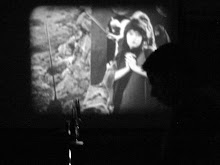Honestly, I can't call myself a traveler. The three years I spent commuting in Bangalore sapped enough from me to live on campus thereupon. Running long distances for fitness is one matter but hikes spread over days, weeks and months is quite another. Now am uncomfortable with hikes. I just can't come to terms with the living outdoors for days together. Unfortunately, I don't even know why I feel so. This novel by Damon Galgut is a Man Booker Prize finalist which revolves around traveling on foot with no solid itinerary. The concept is alien to me, of course I know of it but I don't relate to it in any way. In spite of this the book has got me thinking.
Here is a very easy read in simple language at 180 pages. It is reviewed as a work of great depth. It consists of three short stories with travels in Africa, Europe and India. In my understanding this is a story of a loner trying to connect but failing to do so in all three of the short stories.
The writer jumps between first and third person very often. I couldn't fully understand why he does this. Perhaps I was reading quickly to return it at the library where it was recalled. In the first story at least I had an interpretation. Here Damon, the protagonist shares his name with the author, meets Reiner and their journey together seems to me like a marriage. Their interaction seems so much like husband and wife. Taking this as cue I imagined the first person narration to be the voice of a helpless child. Helpless because the child can't take any active step to helping the relationship. The second story had the urgency and desperation of being in love for the first time. Damon runs all over violating immigration laws of a foreign country. The sequencing of these two stories is different, the first story reminds me of marriage while the second reminds me of falling in love. Usually, it'd be the other way round. Of course, another point of view would be that Damon found love again. These two stories were apparently written years and years ago while the third was a recent addition. This third story seems to be Damon's attempt at social service to alleviate his pain, alas happiness is not his fate. He takes an addict to Goa to help with her rehab but things don't go as planned. This addict is steadily working towards suicide to avoid old age. Damon, the traveler, seems to be destiny's child. Things keep happening to him, bad things that too and there is little he can do.
No tale ends well for Damon. There is a sense of hope, a light at the end of the tunnel in every story but they are all false. The book seems very very depressing. Why would someone want to write a novel with almost no happiness in it? I felt sad reading it, this review is not happy either. Surely it must have been hard on the writer to undertake this exercise. Why would Damon Galgut do this to himself?
In some ways I felt this novel was like the experience during the course of a PhD in a foreign land, perhaps any individual research experience is the same. With my wife the ride has been smoother, I at least interact intimately, not superficially, with someone. I meet a few doctoral students from India at my university who are desperate to connect with someone, friend or love. Research has no clearcut road to a well-defined destination oftentimes, one doesn't know where he or she is headed. The individual just travels down a certain path at a crossroad he thinks will lead him to El Dorado (publication, graduation). After a while it could easily be back to the same crossroads. The supervisor, other students in the lab if there are any may or may not connect with his idea. The protagonist in this book in this novel has similar experiences in his short stories.
I earlier said there are no positives in this novel, maybe I have to revisit this. This book teaches us to keep going. Damon doesn't stop. After each story I wondered how Damon picked himself. The novel doesn't give any clear indication (I think) of the time between the three stories but however long it may have been he picks himself, packs his bags and sets out on another journey. After Damon smuggles the suicidal addict back to South Africa he completes his travel in India. I guess no matter what, the journey has to be undertaken.
